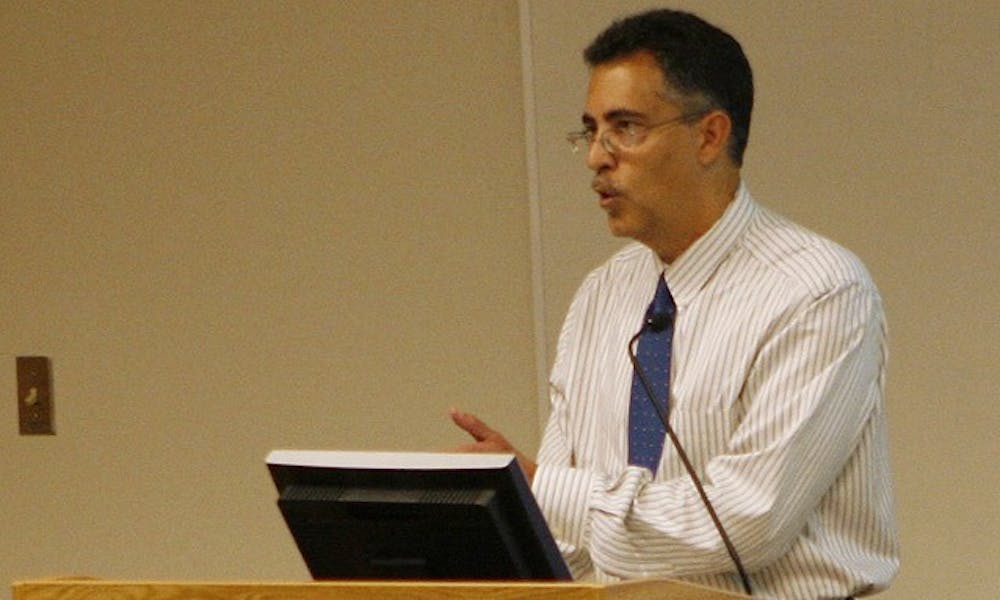The Academic Council approved the creation of a Ph.D. program in Environmental Policy Thursday.
The council also reviewed a proposal to create an Institutional Conflict of Interest in Research policy and discussed moving the president’s annual address to the faculty from the Council’s meeting.
Chair Craig Henriquez, professor of biomedical engineering and computer science, said he thinks students in the new Ph.D. program would be strong candidates for future environmental policy jobs. The program will be sent to the Board of Trustees for approval at its Dec. 4-5 meeting.
Dr. Ross McKinney, director of the Trent Center for bioethics, humanities and history of medicine, presented a draft of the proposal to create an Institutional Conflict of Interest in Research policy, which he said would cover situations in which the financial interests of the institution or top officials who represent Duke may affect the research, education, clinical care, business or other activities of the University.
McKinney said similar policies are beginning to appear at other universities and Duke is relatively ahead on this issue. He said the policy, which will be also be presented to the Trustees in December, would not greatly affect faculty members who are not senior officials.
“The other area [the policy would take effect] will be in the gifts, because we have the concern that there are gifts being given to the institution that may be given in order to influence people or policy or research outcomes,” McKinney said.
The Council also discussed when President Richard Brodhead should address the faculty in his annual President’s Meeting, which has previously occurred at October Academic Council meetings. Members proposed experimenting with a new format that would be separate from Academic Council. Members said that if the proposed annual faculty meeting were poorly attended, the president’s address could return to its Academic Council setting.
Brodhead said he thinks it is important for the president to interact regularly with faculty members and asked the Council to consider ways to optimize attendance in the new format.
“I think it’s a great idea for the president to speak to the faculty—I have no desire not to speak to the faculty,” he said. “Last year, there were topics that it was very important for the president to speak about that it was not right for the president to speak about at the Academic Council meeting.”
In other business:
The Executive Council will review Executive Vice President Tallman Trask and Dean of the Graduate School Jo Rae Wright for their five-year evaluations.
Council members approved three finalists as Faculty Scholars for 2009-2010. The awards are based on departmental nominations of students with high grade point averages, who have performed independent and innovative work and who have expressed interest in pursuing a scholarly career.
Members unanimously approved conferring awards on senior Rose Li in chemistry, senior Kathryn Maxson in biology and senior Matthew Rognlie in math and economics. Members also approved designation with honorable mention for senior John Harpham, a member of The Chronicle’s editorial board, in political science and senior Jordan Rice, a columnist for The Chronicle, in Spanish and Latin American studies.
Associate Dean of Student Development Benjamin Ward, chair of the Faculty Scholar Award Committee, said that although the deadline for submitting nominations was pushed back a month from previous years, the committee received only 22 nominations from just 16 of the 34 undergraduate departments in Trinity College of Arts and Sciences.
“We thought, perhaps naively, that [the date] change might generate more nominations—in fact, it did not,” Ward said, adding that last year only 16 departments submitted nominations as well. “One lamentable note this year, this is the first year in my recollection that we’ve not received any nominations from the Pratt School of Engineering.”
Get The Chronicle straight to your inbox
Signup for our weekly newsletter. Cancel at any time.

